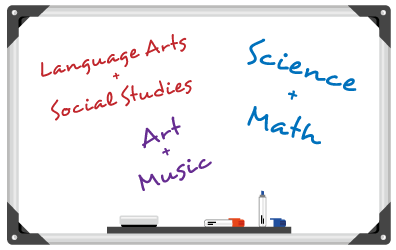Lori Goodson, Editor
Mary Hammel, Technical Editor
Category: February 2021
In the Classroom: Sonora Sheldon Seacat

Name: Sonora Sheldon Seacat
Location: Northwest R-I, House Springs, Missouri
Class/content area taught: 8th Grade Math & Algebra 1
What are you most excited about with your new career? It’s so fun to finally have my own classroom. Throughout college, I formed many ideas related to my classroom procedures, layout, decorations, structure, etcetera. Now those ideas are coming to life!
What you enjoy most about teaching: I love building relationships with my students. It’s much easier to teach when you know your students on a personal level. My students are leaders, peacemakers, dreamers, action-takers, adventurers, and innovators. I love watching their personalities shine in the classroom.
In what ways has your school/district supported you? I am so blessed to be working here. I knew very little about this school, district, and community when I moved to the area, so I really lucked out! I work with an incredible group of educators. They have been so supportive throughout my first year of teaching. From giving classroom management advice to recommending a good car mechanic, my coworkers have my back!
What are some specific things you believe KSU especially helped prepare you for your new career? Because I’m not teaching in Kansas, I was worried about not being very familiar with the state standards. Thankfully, Dr. Martinie did an incredible job of teaching us how to break down and analyze standards. She also passed on a wealth of teaching tools and strategies that I have been able to both apply in my own classroom and share with other teachers.
Are there specifics about your background that make teaching the perfect fit for you? I come from a long line of educators. Both of my dad’s parents were teachers. My mom teaches social studies. My aunt teaches kindergarten. I also have a large number of cousins who are educators or are currently studying to be an educator. Because of this strong connection to education, I grew up with a great respect for teachers and the teaching profession. However, it wasn’t until the end of my freshman year of college, after trying out two other majors, that I realized I also wanted to be a teacher. At the start of college, teaching almost seemed too obvious of a career choice, so I think I had to try other majors first in order to be certain.
Suggestions/encouragement for new teachers: Teaching is not an easy profession. There will be a lot of days that are physically or emotionally draining. It’s incredibly rewarding though. Nothing beats getting an unexpected note from a student that says, “You are the best teacher ever! Thank you so much!”
Bonus question, thanks to the Pandemic: COVID-19—How has the Pandemic shaped your classroom—the environment, safety precautions, etc.? How has it affected you as a new teacher? Teaching during a pandemic is crazy. There is no other way to put it. When my friends ask what my teaching schedule looks like, it usually takes me at least 10 minutes to explain our hybrid learning structure and they get a look on their face that says, “I wish I had never asked.” I could also probably write a ten-page essay on the subject of teaching during a pandemic, but I’ll spare you and summarize my thoughts with this statement: Teaching is not easy. Teaching during a pandemic is definitely not easy. Nevertheless, teaching is necessary. I did not choose to become a teacher because I thought it would be an easy career choice. I became a teacher because I saw a need that I wanted to help fill. Because of the pandemic, I have learned to adapt and problem solve in ways that I never would have previously considered. While there are many aspects of the pandemic that are unfortunate, I am thankful for the opportunities it has presented educators to grow and learn.
Spring…and assessments..will be here soon…no, really
 It’s nearly time for assessments, so we’re offering some tips to help you make the most of it!
It’s nearly time for assessments, so we’re offering some tips to help you make the most of it!
- Let your students’ parents know about the approaching assessments.
- Give students and parents an idea of what the assessments will cover.
- Remind your students that they’re prepared for the assessments.
- Encourage students to eat well – especially breakfast – before a testing day.
- Have students drinking adequate amounts of water.
- Encourage them to do their best – and be proud of them when they do.
- Know that some students are taking tests in more than one content area, so understand if they’re especially stressed.
- If your students are preparing for tests, try to balance that with enjoyable student-focused activities.
- Try not to stress over these assessments; you’ve been preparing your students throughout the year with all your engaging activities and assignments.
- Smile. Your calmness and confidence will carry over to your students.
- And, just to balance things a bit, check out this article on creative teaching activities that DON’T involve filling in bubble answer sheets: Bubble Test Rebellion.
Those were the days…typewriters and ditto masters
We decided to go down memory lane with some of your COE professors and ask them what “technology” they had in their classroom for their first year. Um…not-so-good-ol’-days?
Mrs. Kaylee Myers (Elementary Education)—“An overhead and a cassette/tape recorder!”
Dr. Vicki Sherbert (Secondary English/Language Arts, Speech/Theatre, Journalism)—“I had an overhead projector and created transparencies on clear acetate to show on the screen. We had a ditto machine in the workroom that had a drum containing some sort of fluid. I created ditto masters that would be clamped onto the drum which spun around and around, copying the text in purple onto the pages. There was a Xerox machine at the school board office, but we weren’t allowed to use it.”
Dr. Brad Burenheide (Secondary Social Studies)—“A lovely green screen Apple IIe.”
Dr. Todd Goodson (Secondary English, Speech/Theatre, Journalism)—“The school invested in a photocopy machine so teachers didn’t have to type everything they wanted to reproduce on purple stencils. If you’re curious, find the oldest teacher in your building and ask that person what a purple stencil was.”
Mrs. Cyndi Kuhn (Technology)—“I had absolutely nothing my first year, way back in 1975 when I began teaching, we had typewriters and mimeograph machines. It was paper, paper paper, and you really had to plan ahead.”
Silly first-year mistakes: We’ve all made them
 We asked your former professors: What’s one of the funniest/silliest mistakes you made as a first-year teacher?
We asked your former professors: What’s one of the funniest/silliest mistakes you made as a first-year teacher?
Dr. Todd Goodson (Secondary English, Speech/Theatre, Journalism)—“The office called for me to go to gym for a head lice check. I forgot to take my students with me.”
Dr. Sherri Martinie (Secondary Math) – “I hardly ever sat down. I stayed busy the whole day and even often ate lunch on the go. One day I was opening a pull-top can of tuna walking down the hallway and sliced my thumb. I had to leave school and have someone take me to get stiches! Lots of people teased me about it. I learned that I needed to stop, sit down, relax and enjoy a 20-minute lunch! My well being depended on it!”
Dr. Tom Vontz (Elementary Social Studies) – “I left my barn door open after lunch.”
Dr. Phillip Payne (Music Education) – “Most of these are really inside jokes among our staff! We still have a great time with them… while this is not silly, the moral of the story is enjoy every moment and don’t take yourself too seriously.”
Add some fun by teaming up with some secondary colleagues
 Some of your former secondary professors provided suggestions on content areas that would connect well with their content areas. Here’s what they had to say:
Some of your former secondary professors provided suggestions on content areas that would connect well with their content areas. Here’s what they had to say:
Cyndi Kuhn (Technology) – “Art and music.”
Dr. Brad Burenheide (Secondary Social Studies) – “Language arts/social studies is a natural fit!”
Dr. Todd Goodson (Secondary English, Speech/Theatre, Journalism)—“Any content can collaborate with any other content, and any grade level can collaborate with any other grade level. The most important thing in a successful collaboration is the quality and the nature of the professional relationship of the teachers leading the project. Bright, enthusiastic teachers who reinforce each other’s creativity can help their students see powerful connections across contents and ways of thinking. On the other hand, forced collaboration between teachers who have no desire to work together usually doesn’t end well for anyone. Our best colleagues are those who make us better, as teachers and as people. When you encounter those individuals, look for ways to collaborate so your students can see how we make connections across all disciplines.”
Dr. Sherri Martinie (Secondary Math) – “Science.”
Dr. Vicki Sherbert (Secondary English/Language Arts, Speech/Theatre, Journalism) – “English/Language Arts, Speech/Theatre, and Journalism present wonderful opportunities to collaborate in all content areas. Often there are topics covered in Social Studies classes to which literary works can be paired so that students are immersed in stories that bring historical events to life. There are also more and more non-fiction texts that can be read in the ELA classroom that support science topics and inquiry processes.”
Dr. Phillip Payne (Music Education) – “ All the subjects… specifically – Visual Art, History, Language Arts, Math. These all allow for great integration projects within courses.”
Dr. Tonnie Martinez (Secondary Language Arts) – “American Literature and American History; World History and World Literature.”
Send us an update!
What’s up?
Why don’t you send us a photo of you at work in your classroom! Or, do you have a question about classroom procedures? A suggestion for a topic we should address in Before the Bell? Want to add your name to our mailing list? Or provide a different email for our list? At the very least, just email and say hi!
Early-career teachers, feel free to jump in and offer suggestions to those who are following your career choice!
We’d love to hear from you, so please email us at lagoodson@k-state.edu.
Go, COE Cats!
A look toward March
 Spring is in the air! Well, in between snowflakes–but we’re getting close!
Spring is in the air! Well, in between snowflakes–but we’re getting close!
And you are SO close to finishing your first (or beyond!) year as a classroom teacher! With that in mind, we’re going to provide some information that should help you have an amazing finish to your hear. We’re going to focus on the following in our March issue:
- Assessments – The Sequel
- Spring Break Recharging
- Purple Possibilities